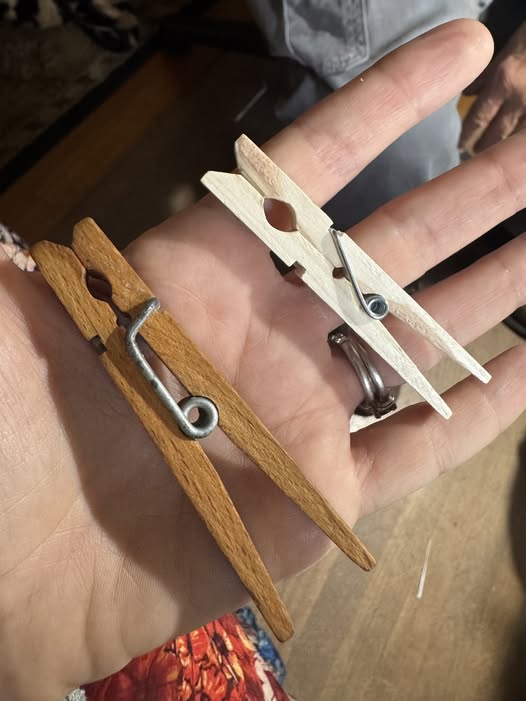It’s easy to dismiss this shift as inevitable,
It’s easy to dismiss this shift as inevitable, a natural progression of technology and consumerism. But there’s a cost to this mindset, far beyond the environmental toll. We’ve lost something intangible—a connection to the things we own, and by extension, to the lives we build around them. That old clothespin wasn’t just a tool; it was a testament to an era when quality and thoughtfulness were priorities. Holding it reminded me of simpler times, when life moved slower and people took pride in what they created.
My dad didn’t say much after showing me the clothespins. He didn’t need to. They spoke volumes on their own. As I placed them back on the table, I couldn’t help but feel a pang of grief—for the loss of craftsmanship, for the fleeting nature of modern conveniences, and for the stories we no longer tell through the objects we create.
But amidst the sorrow, there was also gratitude. For the lessons these clothespins taught me. For the reminder that some things, like memories and values, can endure despite the march of time. And for my dad, who saw fit to share this quiet reflection with me.
Sometimes, the smallest objects hold the biggest truths. In the case of these two clothespins, they revealed the fragility of our present and the enduring strength of our past. Perhaps, if we pay attention, they can also guide us toward a future where we choose to value what lasts.

